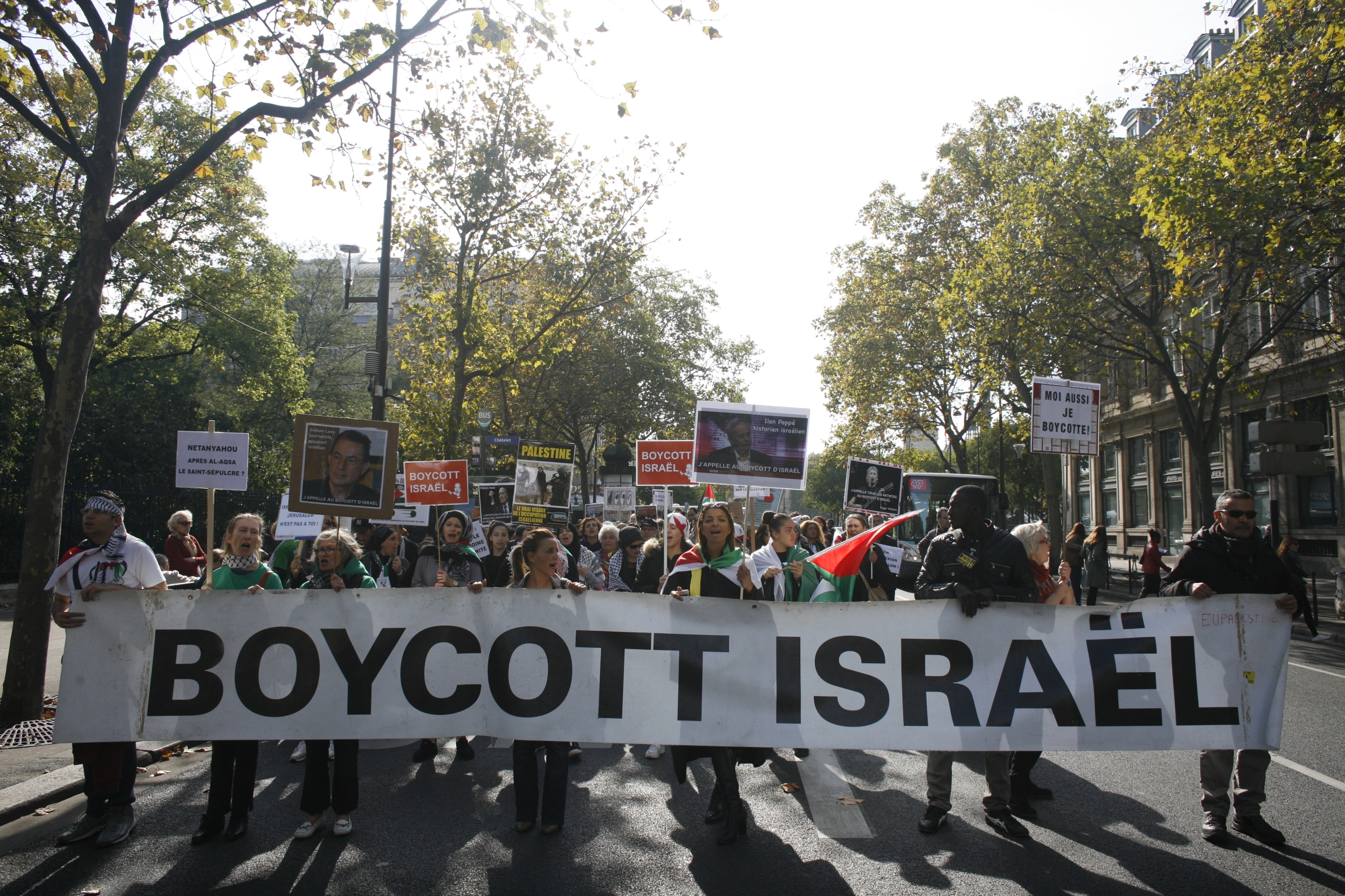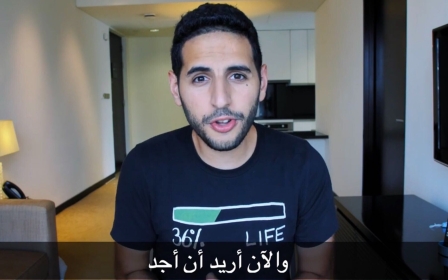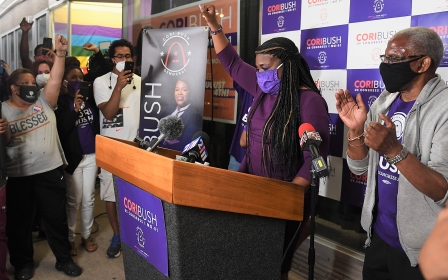Israel boycott: What is the BDS movement?

For 15 years, the Boycott, Divestment and Sanctions (BDS) movement has been both a rallying cry for Palestinians and pro-Palestinian activists, as well as a bogeyman conjured by supporters of Israel at every opportunity.
On Thursday, US Secretary of State Mike Pompeo said the United States would label BDS as antisemitic, calling the movement "a cancer".
He said Washington would "regard the global anti-Israel BDS campaign as antisemitic... we want to stand with all other nations that recognise the BDS movement for the cancer that it is".
Where did the BDS movement come from?
Although boycotts had long been in place against Israel from several Arab states, the official civil society-led BDS campaign was launched on 9 July 2005 by a group of Palestinian activists, including campaigner Omar Barghouti, who also co-founded the Palestinian Campaign for the Academic and Cultural Boycott of Israel (PACBI) in 2004.
The new campaign was founded against the backdrop of the collapse of Israeli-Palestinian peace negotiations and the violence of the Second Intifada, which saw thousands of Palestinians and Israelis killed between 2000 and 2005. The BDS movement presented itself in opposition to both what it saw as the one-sided and ultimately futile negotiations with Israel and the bloodshed of the armed uprising.
The model for the campaign was the boycott movement against apartheid South Africa. It argued that Israel had created an apartheid state between the Jordan River and the Mediterranean Sea, so opposition had to come in pressuring Israel economically and challenging the country's normalisation in international circles, much as had occured with the racist regime in South Africa.
What are the goals of the BDS movement?
The BDS movement says its goal is to "pressure Israel to comply with international law" and sets out three fundamental aims:
1. Forcing Israel to end the occupation of Palestinian territories in East Jerusalem, the West Bank and Gaza Strip. Included in this is dismantling the "apartheid wall" built by Israel that runs through the West Bank and ending the blockade and siege of Gaza.
2. Recognising the equal rights of the Palestinian citizens of Israel who make up one fifth of the population of Israel as established by the armistice line formed after the 1948 war.
3. Ensuring the right of return for Palestinian refugees to the homes and land they were forced to vacate during the 1948 war and in acts of displacement since.
The movement describes itself as opposed to all forms of discrimination, including Islamophobia and antisemitism. Though Barghouti and some supporters of the movement favour the creation of a single state between the Jordan and the Mediterranean, the Palestinian BDS National Committee takes no official position on the nature of Palestinian statehood.
Who supports the BDS movement?
Among the prominent supporters listed on the BDS movement website are South African Archbishop Desmond Tutu, academics and campaigners Naomi Klein, Angela Davis and Judith Butler, and musician Roger Waters. There is widespread support for the campaign across Palestinian society and the wider Arab world and Muslim-majority countries, while a small number of left-wing Israelis have also expressed support.
In 2015, more than 700 artists signed a letter in support of the movement, pledging to "accept neither professional invitations to Israel, nor funding, from any institutions linked to its government until it complies with international law and universal principles of human rights".
Scores of trade unions, religious organisations and campaigning groups around the world have also endorsed the campaign
Who opposes the BDS movement?
Israeli government officials have denounced the BDS movement as antisemitic and claim its ultimate goal is the destruction of the Israeli state. Israel brought in legislation in 2011 to criminalise calls to boycott Israel and in 2017 passed a law banning BDS supporters from the country.
A number of other countries have also passed legislation banning BDS. As of 2020, 32 US state legislatures have passed bills penalising organisations or individuals who support boycotts of Israel or of products from the occupied territories.
The UK introduced legislation in 2019 aimed at preventing public bodies, including universities, from supporting boycotts.
Some campaigners have criticised the BDS movement's focus on boycotting products of Israel in totality, rather than just products from the settlements in the occupied territories, which are illegal under international law.
What success has the BDS movement had?
Several cultural, political and academic figures have declined invitations to perform or appear at events in Israel as a result of the BDS campaign.
Physicist Stephen Hawking said in 2013 he would be pulling out a conference in Israel “based on advice from Palestinian academics that he should respect the boycott".
Numerous musicians, including Lorde, Lana Del Ray, Stevie Wonder, Elvis Costello and Lauryn Hill have cancelled concerts in Israel following calls from the BDS campaign.
The Israeli company SodaStream pulled its operations out of the occupied West Bank after years of campaigning by boycott campaigners, though the company denied that this was the reason for the withdrawal.
The movement also claimed as a victory a 2016 decision by the Orange telecoms company to drop its Israeli affiliate.
Campaigners have also succeeded in convincing numerous universities to divest from Israeli companies.
Middle East Eye propose une couverture et une analyse indépendantes et incomparables du Moyen-Orient, de l’Afrique du Nord et d’autres régions du monde. Pour en savoir plus sur la reprise de ce contenu et les frais qui s’appliquent, veuillez remplir ce formulaire [en anglais]. Pour en savoir plus sur MEE, cliquez ici [en anglais].




